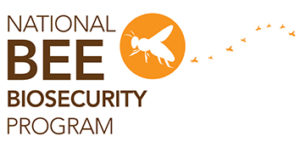What is the National Bee Biosecurity Program?
19 October 2022The aim of the National Bee Biosecurity Program (NBBP) is to help beekeepers to manage pests that are already in Australia, and to prepare for incursions by exotic pests. Generally […]

The aim of the National Bee Biosecurity Program (NBBP) is to help beekeepers to manage pests that are already in Australia, and to prepare for incursions by exotic pests.
Generally speaking, Australian governments focus on pre-border and at-the-border biosecurity, pest surveillance activities and emergency pest or disease incursions. The honey bee industry and individual beekeepers are responsible for managing established pests and checking for exotic ones.
As a result, the beekeeping industry has established a levy to pay for biosecurity activities, and has developed a Code of Practice for all beekeepers to follow.
To help beekeepers to implement biosecurity measures and to ensure that they are complying with the code and relevant legislation, Bee Biosecurity Officers are employed within six state departments of primary industry. The biosecurity officers are there to provide training and education.
Who are your BBOs?
| Jurisdiction | BBO | Email contact | Ph. contact |
| QLD | Tonia Johnson | Bee.biosecurity@dpi.qld.gov.au | M: 0439 269 892 |
| NSW | Rod Bourke | rod.bourke@dpi.nsw.gov.au | P: 02 4939 8946
M: 0438 677 195 |
| TAS | Julie Lupia | julie.lupia@nre.tas.gov.au
|
M: 0467 805 968 |
| VIC | Karyn Di Florio | karyn.diflorio@agriculture.vic.gov.au | M: 0448 941 756 |
| SA | Davide Stella | Davide.Stella@sa.gov.au | T: +61 8 8207 7900
M: + 61 408 244 091 |
| WA | Shannon Holt | shannon.holt@dpird.wa.gov.au | M: 0475 814 016 |
For contract regarding the Varroa mite response please call the Exotic Plant Pest Hotline 1800 084 881.
What have they been up to?
In the event of an exotic pest incursion, the biosecurity officers are there to provide expert support to industry, and to help design and implement response measures. With the recent incursion of Varroa mite in NSW, all BBO’s have been extremely busy assisting with the response in various ways, such as:
- Assisting in NSW at the State Control Centre (SCC)
- Assisting in their local jurisdiction SCC
- Assisting with activities in the National Bee Pest Surveillance Program (NBPSP)
- Assessing compliance and conducting surveillance at pollination events
Update from a few BBOs
NSW
Rod Bourke, NSW DPI Bee Biosecurity Officer, based at Tocal Agricultural College in the Hunter Valley since mid-2017.
My work location is now within the Red “eradication” Zone of the Varroa response. I, along with Mark Page (BBO-Surveillance), were amongst the first responders when we were tasked with euthanising all Newcastle Port sentinel hives on 22nd June after being advised that Varroa destructor had been found within 2 of them. Since that time, I have undertaken many various roles within the response including general varroa sampling within hives in the Newcastle area, euthanising Infected Premises (IP) hives and week 2 of the Almond Surveillance program in the Riverina.
QLD
No Appointment (27/05/2025)
WA
Shannon Holt
SA
No Appointment (27/02/2025)
The NBBP is coordinated by Plant Health Australia and funded by state and territory governments and by AHBIC using their PHA levy. Co-investment is also provided from state apiary funds in South Australia and Victoria.
